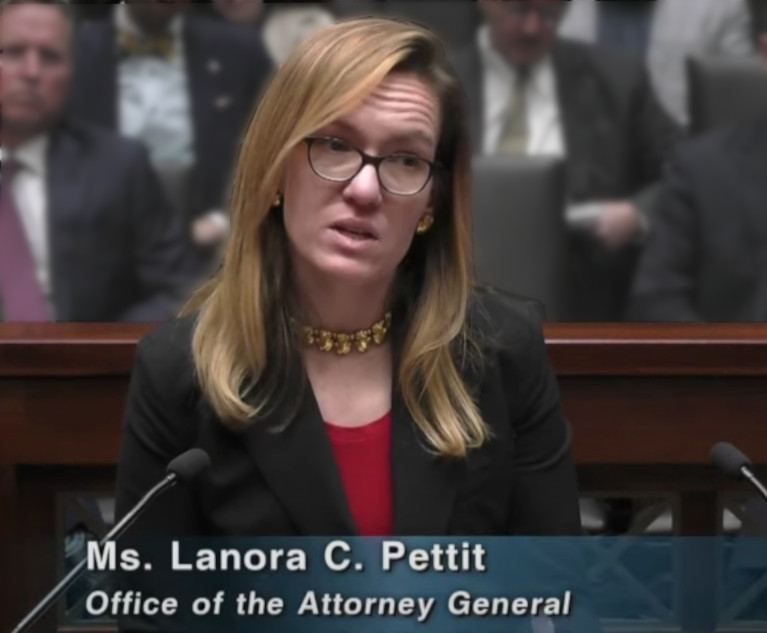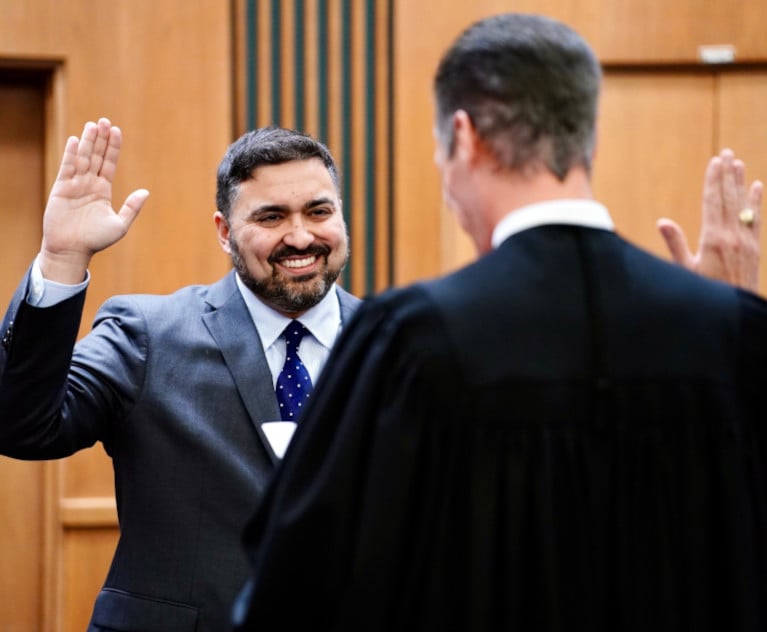Destroying Evidence Gets Houston Sanctioned in Prisoner-Rights Class Action
U.S. District Judge Kenneth Hoyt found that the city intentionally destroyed evidence and made deliberate mischaracterizations to the court. He ruled that the putative class, consisting of thousands of individuals formerly detained in the city jail, is now entitled to an adverse inference at trial.
August 31, 2018 at 05:10 PM
3 minute read
 Houston
Houston
A federal judge in the Southern District of Texas has hit the City of Houston with discovery sanctions in a lawsuit accusing it of failure to provide timely probable cause hearings for warrantless arrestees.
U.S. District Judge Kenneth Hoyt found that the city intentionally destroyed evidence and made deliberate mischaracterizations to the court. He ruled that the putative class, consisting of thousands of individuals formerly detained in the city jail, is now entitled to an adverse inference at trial.
Hoyt ruled that the city, in Hernandez v. City of Houston, maintained an unconstitutional policy for the entirety of the two-year class period. And Houston's key policymakers were aware of that policy, but acted with deliberate indifference to the unconstitutional harm that resulted, the judge found.
Although no class has been certified, lawyers for the class see the ruling as a major advance.
According to Amanda Elbogen, part of a team from Kirkland & Ellis that represents the class, the decision effectively limits the remainder of the case to the question of damages.
Hoyt said an adverse inference finding is appropriate under Compaq Comput. Corp. v. Ergonome Inc., a 2004 case from the U.S. Court of Appeals for the Fifth Circuit, which held that such a sanction cures a discovery violation without inflicting additional costs on the parties.
Hoyt said Houston intentionally destroyed evidence by erasing hard drives from computers used by three records custodians, even though the city knew the drives contained evidence that was material to the litigation, and that spoliation was an affront to discovery rules and court orders.
The city made multiple misrepresentations to the court about its discovery process, according to Hoyt. Among them were its claim that it needed to review 2.6 million documents in response to the plaintiffs' discovery requests. That claim was contradicted by an affidavit showing that far fewer documents—78,702—were retrieved in a search based on court-ordered terms, the judge said. The city also falsely represented to the court that it instituted a litigation hold after the suit was filed, he said.
The suit seeks compensatory damages on behalf of a class: those arrested without a warrant and detained by the city without a judicial determination of probable cause within 48 hours. The proposed class period is from two years before the filing of the complaint, in December 2016, up until the date of an order granting class certification.
Besides Elbogen, Kirkland's team on the case includes Christine Payne, from Chicago, focusing on e-discovery, as well as Anna Rotman and Patrick King in the Houston office, and Alex Zuckerman in New York.
The firm partnered with Charlie Gerstein at Civil Rights Corps in Washington.
This content has been archived. It is available through our partners, LexisNexis® and Bloomberg Law.
To view this content, please continue to their sites.
Not a Lexis Subscriber?
Subscribe Now
Not a Bloomberg Law Subscriber?
Subscribe Now
NOT FOR REPRINT
© 2025 ALM Global, LLC, All Rights Reserved. Request academic re-use from www.copyright.com. All other uses, submit a request to [email protected]. For more information visit Asset & Logo Licensing.
You Might Like
View All


Trending Stories
- 1Critical Mass With Law.com's Amanda Bronstad: 700+ Residents Near Ohio Derailment File New Suit, Is the FAA to Blame For Last Month's Air Disasters?
- 2Law Journal Column on Marital Residence Sales in Pending Divorces Puts 'Misplaced' Reliance on Two Cases
- 3A Message to the Community: Meeting the Moment in 2025
- 4Ex-Prosecutor Denies on Witness Stand That She Tried to Protect Ahmaud Arbery's Killers
- 5Latham's Lateral Hiring Picks Up Steam, With Firm Adding Simpson Practice Head, Private Equity GC
Who Got The Work
J. Brugh Lower of Gibbons has entered an appearance for industrial equipment supplier Devco Corporation in a pending trademark infringement lawsuit. The suit, accusing the defendant of selling knock-off Graco products, was filed Dec. 18 in New Jersey District Court by Rivkin Radler on behalf of Graco Inc. and Graco Minnesota. The case, assigned to U.S. District Judge Zahid N. Quraishi, is 3:24-cv-11294, Graco Inc. et al v. Devco Corporation.
Who Got The Work
Rebecca Maller-Stein and Kent A. Yalowitz of Arnold & Porter Kaye Scholer have entered their appearances for Hanaco Venture Capital and its executives, Lior Prosor and David Frankel, in a pending securities lawsuit. The action, filed on Dec. 24 in New York Southern District Court by Zell, Aron & Co. on behalf of Goldeneye Advisors, accuses the defendants of negligently and fraudulently managing the plaintiff's $1 million investment. The case, assigned to U.S. District Judge Vernon S. Broderick, is 1:24-cv-09918, Goldeneye Advisors, LLC v. Hanaco Venture Capital, Ltd. et al.
Who Got The Work
Attorneys from A&O Shearman has stepped in as defense counsel for Toronto-Dominion Bank and other defendants in a pending securities class action. The suit, filed Dec. 11 in New York Southern District Court by Bleichmar Fonti & Auld, accuses the defendants of concealing the bank's 'pervasive' deficiencies in regards to its compliance with the Bank Secrecy Act and the quality of its anti-money laundering controls. The case, assigned to U.S. District Judge Arun Subramanian, is 1:24-cv-09445, Gonzalez v. The Toronto-Dominion Bank et al.
Who Got The Work
Crown Castle International, a Pennsylvania company providing shared communications infrastructure, has turned to Luke D. Wolf of Gordon Rees Scully Mansukhani to fend off a pending breach-of-contract lawsuit. The court action, filed Nov. 25 in Michigan Eastern District Court by Hooper Hathaway PC on behalf of The Town Residences LLC, accuses Crown Castle of failing to transfer approximately $30,000 in utility payments from T-Mobile in breach of a roof-top lease and assignment agreement. The case, assigned to U.S. District Judge Susan K. Declercq, is 2:24-cv-13131, The Town Residences LLC v. T-Mobile US, Inc. et al.
Who Got The Work
Wilfred P. Coronato and Daniel M. Schwartz of McCarter & English have stepped in as defense counsel to Electrolux Home Products Inc. in a pending product liability lawsuit. The court action, filed Nov. 26 in New York Eastern District Court by Poulos Lopiccolo PC and Nagel Rice LLP on behalf of David Stern, alleges that the defendant's refrigerators’ drawers and shelving repeatedly break and fall apart within months after purchase. The case, assigned to U.S. District Judge Joan M. Azrack, is 2:24-cv-08204, Stern v. Electrolux Home Products, Inc.
Featured Firms
Law Offices of Gary Martin Hays & Associates, P.C.
(470) 294-1674
Law Offices of Mark E. Salomone
(857) 444-6468
Smith & Hassler
(713) 739-1250







